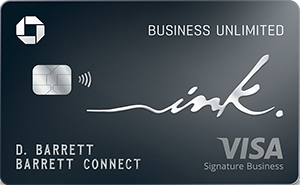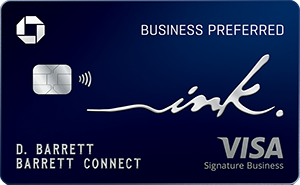Opening a small business credit card can be a smart move for nearly any business owner. These cards can help you cover business expenses and pay them off over time, keep your business expenses separate from your personal ones, and even let you benefit from cash back or rewards on your spending.
But what if you spend up to your credit limit (also known as maxing out the card)? Nothing good. Let’s take a closer look.
You could damage your business’s credit score — or even your personal one
You might not have dug into the intricacies of credit scores before, but you should know that the amount of credit you’re using relative to the amount you have (also known as your credit utilization ratio) is a pretty significant piece of the puzzle. It makes up 30% of your FICO® Score (the most commonly used consumer credit score). The recommendation is that you keep your credit utilization ratio below 30% — so on a credit card with a $10,000 limit, you should be using no more than $3,000 of it at any given time. Using 100% of that limit is therefore bad.
Business Credit Card Comparison
Consider these business credit cards that offer a convenient and efficient way to separate personal and business expenses, simplifying accounting and tax reporting.
Additionally, business cards can provide valuable perks such as rewards points, cashback, and expense tracking tools, enhancing financial management and the potential to help save money in the long run.

Ink Business Unlimited® Credit Card |
|
Earn $750 bonus cash back Earn $750 bonus cash back after you spend $6,000 on purchases in the first 3 months from account opening. |
Earn unlimited 1.5% cash back on every purchase Earn unlimited 1.5% cash back on every purchase made for your business |
Purchases: 0% Intro APR on Purchases, 12 months Balance Transfers: N/A
Regular: |

Ink Business Preferred® Credit Card |
|
Earn 100,000 bonus points Earn 100,000 bonus points after you spend $8,000 on purchases in the first 3 months from account opening. |
Earn 3 points per $1 in select business categories Earn 3 points per $1 on the first $150,000 spent in combined purchases on travel, shipping purchases, Internet, cable and phone services, advertising purchases made with social media sites and search engines each account anniversary year. Earn 1 point per $1 on all other purchases-with no limit to the amount you can earn. |
Purchases: N/A Balance Transfers: N/A
Regular: |
Maxing out the card could impact either your business’s credit score (yes, it has its own), your personal credit score, or both, depending on the card issuer’s policies. Sometimes, business credit card issuers also report card use behavior to consumer credit bureaus. So a maxed-out card has the potential to negatively impact your personal finances, too.
You might be on the hook for fees
Some business credit cards work a bit differently than regular consumer credit cards — they’re instead designated as “pay in full” cards. This means you’re not allowed to carry a balance forward while only making a minimum payment every month.
Instead, you have to pay off the entire balance every month or you get a fee tacked on, often around 2.99% on top of your balance. If you’ve maxed out a card with a credit limit of $10,000, that’s an additional almost $300 on top of your balance. You might find your debt spiraling out of control with an additional fee every month.
You’ll owe large payments
The payments you’ll owe on your maxed-out card may be pretty high. According to Experian, minimum payments are calculated as a flat percentage of your balance or a percentage along with the cost of interest and fees. Let’s say your card with a $10,000 limit charges 4% of the balance as a minimum payment — that gives you a $400 minimum payment. That’s a significant amount of money to cough up every month. If your card charges interest and fees alongside a percentage, that percentage will likely be lower (perhaps 1%).
But if the card has an interest rate of 22.63% (the average rate on accounts charging interest as of February 2024, according to the Federal Reserve Bank of St. Louis), you’re still looking at high payments and a long payoff time. Let’s say you pay $500 per month toward your $10,000 balance. It’ll take you 25 months to pay it off, and you’ll pay $2,672 in interest over that time period.
RELATED: Credit Card Interest Calculator
You might struggle to cover your expenses
Finally, if you’ve charged up to the limit on your business credit card, you might be stuck without a way to pay for needed supplies because you won’t be able to make any more charges on the card. While it’s a good idea to have cash in reserve before you start a business (and yes, your business really should have an emergency fund), everyone’s circumstances are different. If you had to launch your business with little or no cash saved up, your credit card is likely a vital part of the financial picture, and no longer being able to use it to pay for your expenses could be a real hardship.
In short, it’s not a great idea to max out your business credit card because none of the consequences are good. If you’re struggling with your business’s cash flow, look into getting your clients to pay their unpaid invoices or see if there are spending areas you can cut back on. Managing a small business isn’t easy, and if managing the financial side of it is giving you problems, you are surely not alone.
Alert: our top-rated cash back card now has 0% intro APR until 2025
This credit card is not just good – it’s so exceptional that our experts use it personally. It features a lengthy 0% intro APR period, a cash back rate of up to 5%, and all somehow for no annual fee! Click here to read our full review for free and apply in just 2 minutes.
